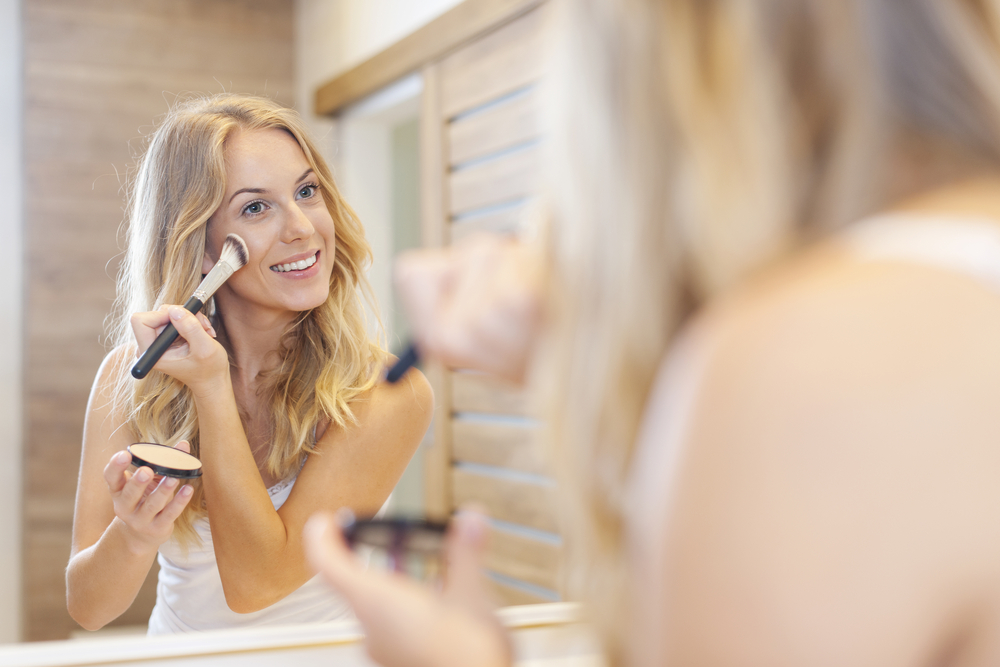Income Inequality: Is There a Grooming Gap?

Get the world’s most fascinating discoveries delivered straight to your inbox.
You are now subscribed
Your newsletter sign-up was successful
Want to add more newsletters?

Delivered Daily
Daily Newsletter
Sign up for the latest discoveries, groundbreaking research and fascinating breakthroughs that impact you and the wider world direct to your inbox.

Once a week
Life's Little Mysteries
Feed your curiosity with an exclusive mystery every week, solved with science and delivered direct to your inbox before it's seen anywhere else.

Once a week
How It Works
Sign up to our free science & technology newsletter for your weekly fix of fascinating articles, quick quizzes, amazing images, and more

Delivered daily
Space.com Newsletter
Breaking space news, the latest updates on rocket launches, skywatching events and more!

Once a month
Watch This Space
Sign up to our monthly entertainment newsletter to keep up with all our coverage of the latest sci-fi and space movies, tv shows, games and books.

Once a week
Night Sky This Week
Discover this week's must-see night sky events, moon phases, and stunning astrophotos. Sign up for our skywatching newsletter and explore the universe with us!
Join the club
Get full access to premium articles, exclusive features and a growing list of member rewards.
When it comes to your wages, do looks matter? A new study says yes.
However, in one aspect of appearance — being well groomed — there was a gender gap, according to the study.
The researchers found that overall, men and women who were considered more attractive earned more money than their less-attractive counterparts, according to the study, published online last month in the journal Research in Social Stratification and Mobility. But when grooming was factored in for men, the numbers evened out. For women, those who were well-groomed women actually had higher incomes than poorly groomed women, regardless of their "natural" level of attractiveness, the researchers found. [10 Things You Didn't Know About You]
"For both men and women, grooming matters more than attractiveness: Being attractive is not enough; it is doing attractiveness appropriately [being well groomed] that proves one's deservingness and is what gets rewarded in the labor market," the authors of the study, Jaclyn Wong, a Ph.D. student in sociology at the University of Chicago, and Andrew Penner, an associate professor of sociology at the University of California, Irvine, wrote in their paper.
In the study, Wong and Penner analyzed data that were previously gathered on 14,600 adults during the the National Longitudinal Study of Adolescent to Adult Health, which tracked a nationally representative sample of people from adolescence to adulthood. The participants were in grades 7 to 12 when the study began, in 1994, and were ages 24 to 32 when researchers last followed up with them in 2008.
At several points during the study, the participants sat down for in-depth interviews, and at the end of each interview, the interviewers rated the attractiveness of the participants as unattractive, average, attractive or very attractive. In addition, the interviewers rated how well groomed they thought the participants were on a similar four-point scale: poorly groomed, average grooming, well groomed or very well groomed.
As adults, the participants provided information about their yearly incomes, according to the study. (The men reported a yearly income that was, on average, $7,000 greater than that of the women.)
Get the world’s most fascinating discoveries delivered straight to your inbox.
The researchers found that overall, attractive people earned about 20 percent more money than "average" people.
In addition, when the researchers compared people of the same level of attractiveness to one another, they found that well-groomed people earned more money than poorly groomed people.
One possible explanation for this effect is that putting effort into one's appearance signals that a person will put effort into other activities, such as his or her job, the researchers said.
The researchers also found that once grooming was taken into consideration, women who were well groomed but unattractive actually earned more money than well-groomed attractive women. This effect was not observed in men.
The findings show that grooming — which requires paying attention to social cues, spending money and conforming to certain social identities — "is the key that provides women with the [benefits] associated with attractiveness," the researchers said.
A previous study found that spending more time on grooming was linked with higher wages for men in minority groups. That study also suggested that for women, spending more than 90 minutes a day on grooming had a negative effect on wages. Excess grooming could signal that people are focused more on their appearance than on their job, the researchers speculated.
Follow Sara G. Miller on Twitter @saragmiller. Follow Live Science @livescience, Facebook & Google+. Originally published on Live Science.

 Live Science Plus
Live Science Plus





